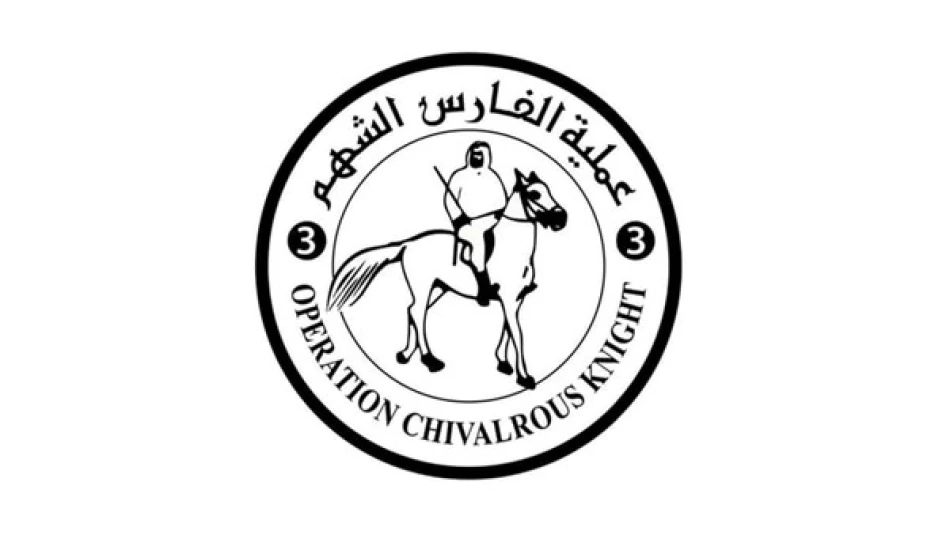
Legendary Knight 3 Mobilizes 'Life and Hope 2' Convoy to Support Gaza Hospitals
UAE Delivers Critical Medical Aid to Gaza as Healthcare System Faces Collapse
The United Arab Emirates has dispatched another major medical convoy to Gaza's struggling hospitals through its "Gallant Knight 3" humanitarian operation, delivering essential medicines and medical equipment as the territory's healthcare infrastructure teeters on the brink of collapse. The "Life and Hope (2)" convoy represents the UAE's continued commitment to supporting Palestinian medical facilities amid severe shortages that threaten patient care.
Emergency Medical Supplies Reach Critical Hospitals
The latest convoy arrived at Gaza's hospitals during a critical shortage period, with medical facilities reporting dangerously low stockpiles of essential medicines and supplies. The delivery was formally announced at a press conference held at Nasser Hospital in Khan Younis, highlighting the urgent nature of the humanitarian crisis.
Dr. Abdul Rahman Hamad Al-Aryani, director of the UAE field hospital, emphasized that the facility continues providing medical assistance as part of the broader Gallant Knight 3 operation. The convoy included diverse pharmaceutical supplies and medical equipment specifically designed to alleviate Palestinian suffering and strengthen the healthcare sector's resilience during these challenging circumstances.
Addressing a Systemic Healthcare Crisis
The timing of this aid delivery underscores the severity of Gaza's medical emergency. Sharif Al-Nayrab, media coordinator for Gallant Knight 3, stressed that supporting Gaza's healthcare sector represents a top priority for the UAE since the operation's launch. He confirmed that medical and emergency convoys will continue without interruption to meet hospital and patient needs while confronting the health catastrophe created by ongoing conflict.
Strategic Humanitarian Diplomacy in Action
The UAE's sustained medical aid campaign reflects a broader pattern of Gulf state humanitarian engagement in regional crises. Unlike one-time emergency responses, the Gallant Knight 3 operation demonstrates institutional commitment through systematic convoy deliveries designed to maintain healthcare continuity rather than merely providing temporary relief.
This approach mirrors successful humanitarian strategies employed by the UAE in Yemen, Lebanon, and other regional hotspots, where sustained medical support has proven more effective than sporadic large-scale interventions.
Healthcare Officials Acknowledge Critical Support
Dr. Mohammed Zaqout, Director General of Hospitals at the Ministry of Health, praised the UAE's humanitarian role and medical convoys, confirming that the arrival of medicines and supplies represents a qualitative addition to healthcare services for patients and injured individuals in Gaza. He described the support as reflecting genuine solidarity with Gaza's population during their most difficult circumstances.
The support arrives precisely when the healthcare sector faces complete depletion of pharmaceutical stocks and medical consumables, making these medical convoys both urgent and critically important for maintaining basic healthcare services.
Long-term Implications for Regional Healthcare Stability
The UAE's systematic approach to Gaza's healthcare crisis signals a recognition that sustainable humanitarian aid requires ongoing commitment rather than reactive emergency responses. This strategy positions the Emirates as a key regional healthcare stability provider, potentially influencing how other Gulf states approach similar humanitarian challenges.
The Gallant Knight 3 operation's medical focus also demonstrates how smaller nations can leverage targeted humanitarian assistance to maintain diplomatic influence and regional standing, even when direct political intervention remains limited.
As Gaza's healthcare infrastructure continues facing unprecedented strain, the UAE's commitment to sustained medical convoy deliveries may prove essential for preventing complete systemic collapse, while establishing a model for effective humanitarian intervention in complex conflict zones.
Most Viewed News

 Layla Al Mansoori
Layla Al Mansoori






